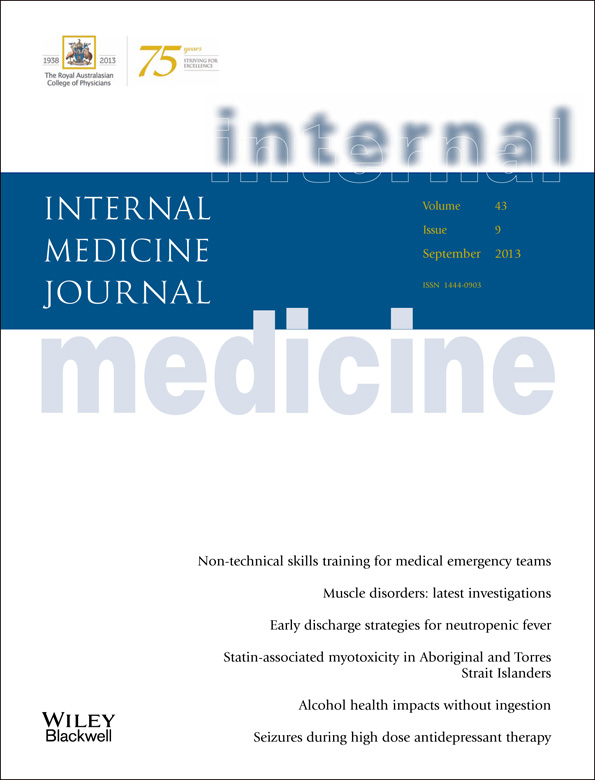Feasibility of early discharge strategies for neutropenic fever: outcomes of a Victorian organisational readiness assessment and pilot
Abstract
Background
Although Australian consensus guidelines support the use of ambulatory care strategies for management of adult patients with low-risk neutropenic fever (NF), few centres have successfully implemented viable programmes.
Aims
To study the feasibility of an early discharge programme for adult patients with low-risk NF and assess organisational factors likely to influence successful implementation across participating Victorian hospitals.
Methods
Four hospitals participated in an organisational readiness assessment preceding selection of a pilot site for programme implementation. Prospective baseline auditing of current practice (i.e. inpatient care until resolution of NF) across three hospitals preceded programme implementation and evaluation.
Results
Barriers and facilitators to successful implementation were identified. One hundred and seventeen NF episodes were evaluated during audit phases. The frequency of low-risk NF presentations eligible for early discharge was low (less than two episodes per week). The programme reduced median (interquartile range) duration of parenteral antibiotics and length of stay for eligible patients (n = 11) from 4 (4, 5) days at baseline to 1 (1, 2) day during pilot (P = 0.02) and 4.5 (4, 5) days (baseline) to 2 (1, 3) days (pilot) (P = 0.02) respectively. The proportion of ineligible patients stepped down to oral antibiotics was improved from 38% (baseline) to 67% (pilot). No patients failed ambulatory care requiring readmission into hospital.
Conclusion
The ambulatory care strategy for management of NF proposed by Australian consensus guidelines has been successfully piloted at a single Victorian centre. Organisational readiness tools can be used to identify potential barriers to the implementation of evidence based practices in patients with NF.




